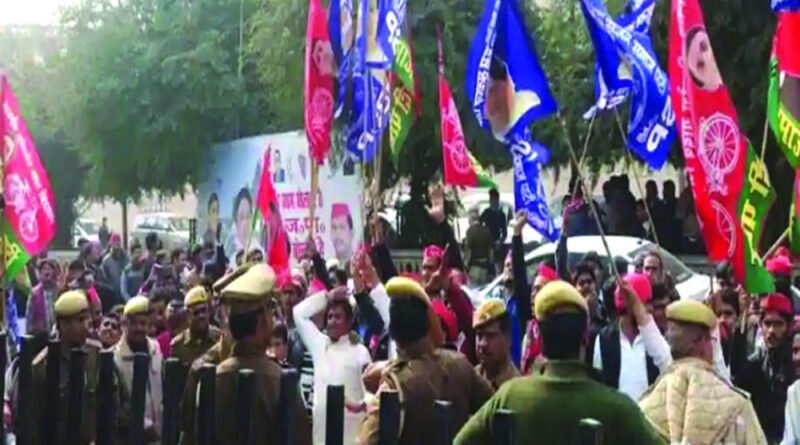A fresh idea on majority-minority
Kerala Governor Arif Md Khan rejects the traditional take on the subject & prefers human rights panels rather than appointing minority commissions
Arif Mohammad Khan, currently the Kerala Governor, has given a fulsome interview to the media which should be a useful guide to many of our citizens. The former Union Minister, once a leading Congressman, says anyone who wins an election and comes to power can be called as being in majority and anyone who loses and remains on the opposite side is in the minority. He is opposed to the appointment of minority commissions; he prefers human rights panels to cater to the needs of those marginalised or perceiving their fundamental human rights under threat. Viewed from the lens of the fundamental requirement of any country that prides itself on being democratic and secular, the Kerala Governor’s logic is irrefutable.
That should bring us to why the label of minority and minority-ism came into being, and the subsequent politics around it. MA Jinnah, the founder of Pakistan, agitated for Partition on the plea that Muslims are a nation and not a minority. He argued for his entire nation to emigrate to what some Muslim League leaders called the “New Medina”. When he found that not many had migrated, he told the Pakistan Constituent Assembly on August 11, 1947: “You are free to go to your temples, mosques or to any other place of worship in this State of Pakistan. You may belong to any religion or caste or creed — that has nothing to do with the business of the State.” However, Jinnah was perhaps too old and sick to enforce the implementation of what he had spoken in August 1947 in the highest Assembly of his new country. As a result, today India has more Muslims than Pakistan!
However, neither Hindus nor Muslims can behave as a separate nation inhabiting the same country. Two nations, aka Jinnah, cannot coexist in one country. Yet some people continue to behave as if they belong to a separate nation. For the country, the consequences of such recalcitrance are a drag on its progress while, for individuals, it is a drag on their future. They and their progeny would indefinitely remain poor and backward; the only beneficiaries could be those who mediate between the poor individuals and God Almighty.
What a piece of news published earlier this week, following a survey, says is welcome. According to the survey, at least eight per cent of the votes cast in the recent Uttar Pradesh elections were reportedly by Muslims in favour of the BJP. Furthermore, it reported that six of the seats won by the BJP were due to the All India Majlis-e-Ittehadul Muslimeen (AIMIM) cutting into the community’s votes that might otherwise have gone to the Samajwadi Party. AIMIM, a political party based out of Hyderabad, polled nearly 19,000 votes in Firozpur and 2,190 in Sultanpur in the UP Assembly elections. The other constituencies where AIMIM polled notable votes were Bijnor, Nakur, Kursi and Shahganj where the party had put up its candidates.
If indeed a change of outlook is taking place in UP, it is particularly welcome. Qaid-e-Azam Jinnah had ebulliently described the Aligarh Muslim University (AMU) as “the arsenal of Pakistan”. Many of its students spent months canvassing for the Muslim League in Punjab in the 1945-46 election, which ultimately led to the creation of Pakistan. When local Punjabis enquired of the campaigners as to what they (meaning the UP Muslims) had to gain from Partition, the latter replied that their campaign was to “win a New Medina” and to “reinstall a new Khalifa” (Caliph)! From an idealistic point of view, one would indeed grieve at such a mentality, although it is human to err. But it is folly to persist with an error.
Former President Dr Zakir Hussain once gave sound advice to his Indian co-religionists along with 13 other leaders; he had begun his counsel as long ago as 1951: “Our misguided brothers in Pakistan do not realise that if Muslims in Pakistan can wage a war against Hindus in Kashmir, why should not Hindus sooner or later retaliate against Muslims in India?” Another piece of advice given by him and his friends was: “If Hindus are not welcome in Pakistan, how can we in all fairness expect Muslims to be welcomed in India? Such a policy must inevitably, as the past has already shown, result in the uprooting of Muslims in this country and their migration to Pakistan, whereas it became clear last year, they are no longer welcome lest their influx should destroy Pakistan’s economy.”
Predictably, the BJP’s emphatic victory in four Assemblies, particularly in UP, has set off yet another round of secular wailing and the by-now-familiar predictions about the impending doom for secularism, democracy, liberalism and what not. Here again, the Kerala Governor’s worldview, that the idea of a majority-minority divide entrenched in societies today has been sown for the very purpose of creating discontent and hatred, offers the sagest outlook and way ahead. Such binaries derail India’s progress. One is a child of India, no matter what the vectors defining us are.
(The writer is a well-known columnist, an author and a former member of the Rajya Sabha. The views expressed are personal.)
Source: The Pioneer




